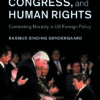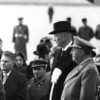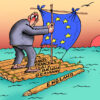News

Reagan, Congress, and Human Rights: Contesting Morality in US Foreign Policy
We are most excited to present the newest book of Rasmus Sinding Søndergaard titled ‘Reagan, Congress, and Human Rights: Contesting Morality in US Foreign Policy‘ The book portrays the role of human rights concerns in US foreign policy during the 1980s, focusing on the struggle among the Reagan administration and members of Congress. It furthermore…
Read more
Revisiting the Spanish Question: The Netherlands, Spain and the United Nations during the early Cold War, 1945-1950
Revisiting the Spanish Question: The Netherlands, Spain and the United Nations during the early Cold War, 1945-1950 Dr. Stefanie F. M. Massink, Utrecht University s.f.m.massink@uu.nl In 2020, the United Nations (UN) celebrated its 75th anniversary. The Netherlands was one of the 51 states that joined the multilateral organization from the start in 1945. In the…
Read more
New Publication: “Britain and the United States in Greece”
Cold War Research Member Spero Simeon Z. Paravantes has recently published “Britain and the United States in Greece: Anglo-American Relations and the Origins of the Cold War” The book reveals how the relationship between Britain and the US developed in this formative period, arguing that Britain used the fast-escalating tensions of the Cold War to…
Read more
Event of the Week: Symposium: “Thirty Years after the End of the Cold War: Ideas for a New Europe”
This Friday (20/11) from 10 am till 12.15 pm, the CWRN is hosting a Symposium: “Thirty Years after the End of the Cold War: Ideas for a New Europe” The symposium will look back at ideas for a new Europe at the end of the Cold War, and use the theme as a springboard to…
Read more
Preview for the Roundtable event on Thursday
This Thursday (12/11) from 4 pm till 5.30 pm, we will host the Roundtable on Curious Connections: Small States, Pericentrism and the Global Cold War. The event is free to attend without any prior registration. Please use the following link to access the event: https://meet.starleaf.com/4340495452 The event will be presented by Dr. Laurien Crump, Dr. Lorena…
Read more
Symposium: “Thirty Years after the End of the Cold War: Ideas for a New Europe”
Laurien Crump is organizing a ca. two-hour online symposium for graduate students and interested colleagues from Utrecht and beyond on Friday November 20, exactly thirty years after the Charter of Paris for a New Europe and the end of the Cold War, entitled “Thirty Years after the end of the Cold War: Ideas for a…
Read more
Roundtable: Curious Connections: Small States, Pericentrism and the Global Cold War
On November 12, three members of the Cold War Research Network, Laurien Crump, Lorena De Vita, and Paschalis Pechlivanis will host a joint digital round table. Each of them will use their latest publications as a starting-point for a debate about questions pertaining to “Small States, Pericentrism and the Global Cold War”. Laurien Crump will…
Read moreA reflection upon the Lecture ‘An irrelevant relationship? The European Free Trade Association (EFTA) and Yugoslavia, c.1960–91’
On the 22nd of October, Matthew Broad held a discussion about the unique position which Yugoslavia occupied during the Cold War. This was the first of a series of digital lectures by the Cold War Research Network, with new events to follow in the upcoming weeks. The event was a great succes and we were very…
Read more
Smoke on the Water: At-Sea Incineration, Environmental Concerns, and the Limits to US Cold War Hegemony
During his lecture on December 17, Dario Fazzi will shed a light on the rise and fall of ocean incineration and the limits of US Cold War hegemony. This waste disposal method was perfected and regulated throughout the 1970s and commercialized in the early 1980s, only to be abandoned by the end of the decade….
Read more
Publication: NATO’s inherent dilemma: strategic imperatives vs. value foundations
Cold War Research Network coordinator Ruud van Dijk published together with Stanley R. Sloan the article “NATO’s inherent dilemma: strategic imperatives vs. value foundations” for the Journal of Strategic Studies. In their article, van Dijk and Sloan argue that it has been clear for several years now that what NATO purports to stand for and…
Read more
